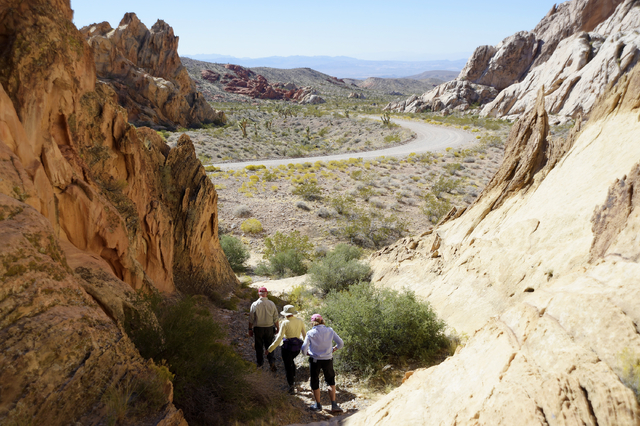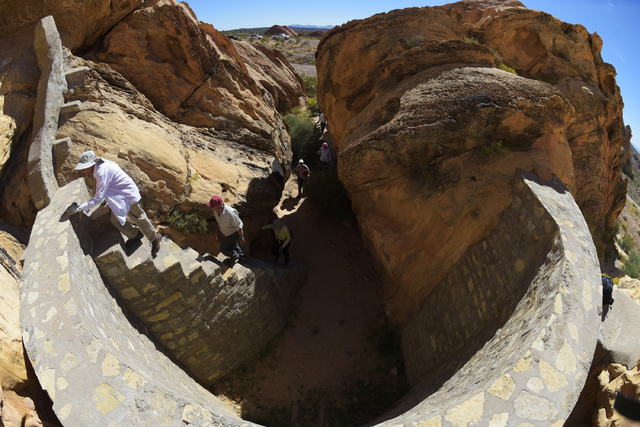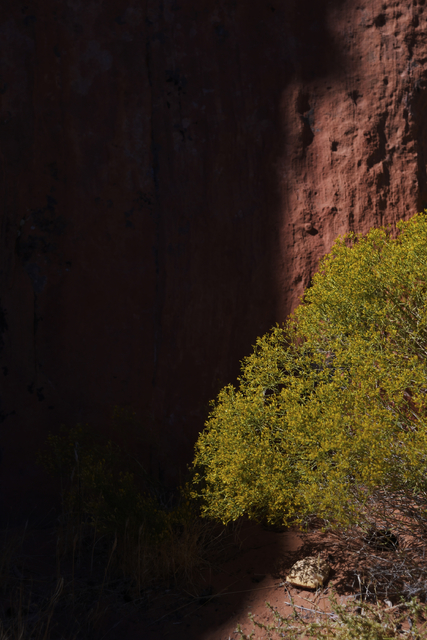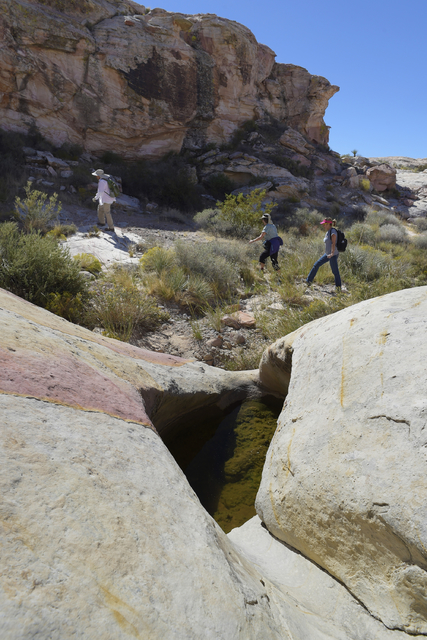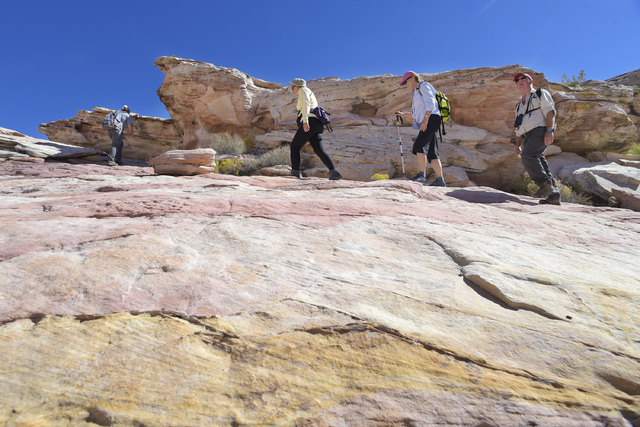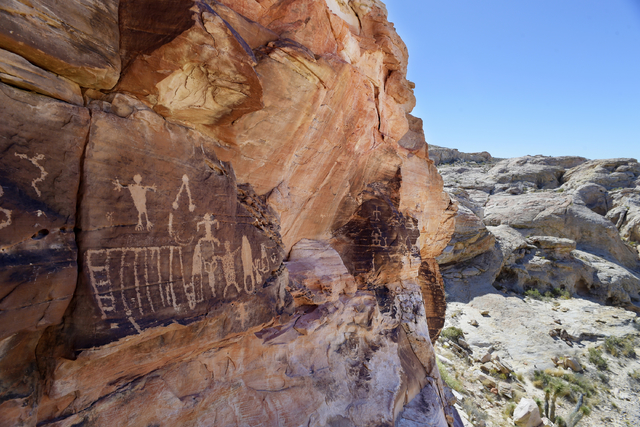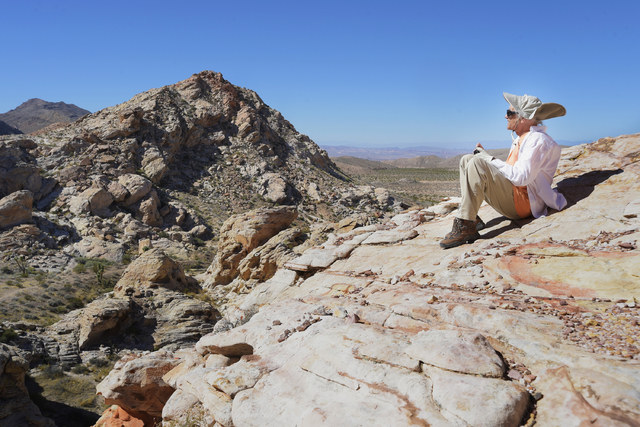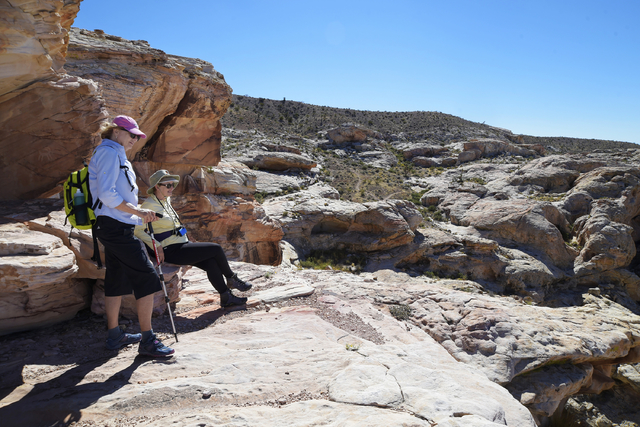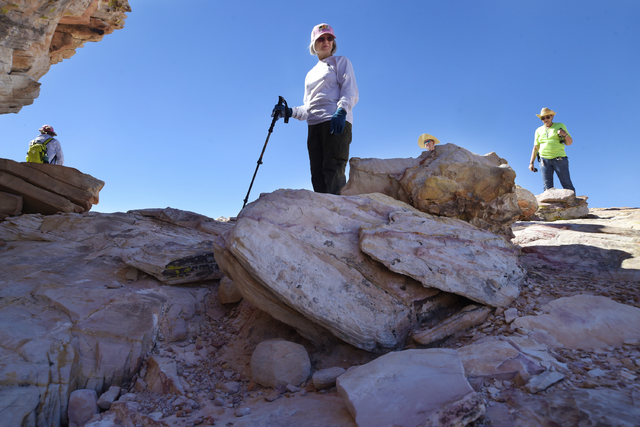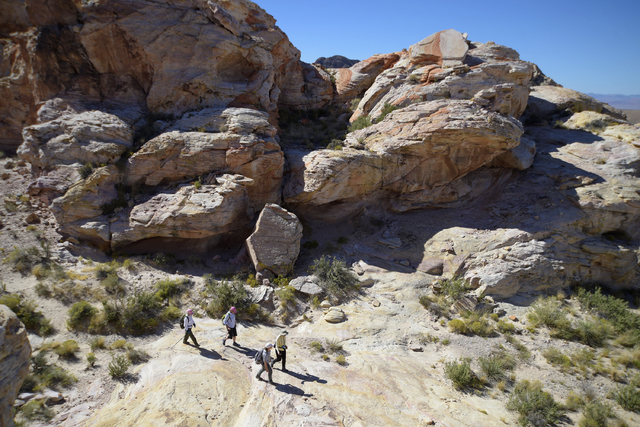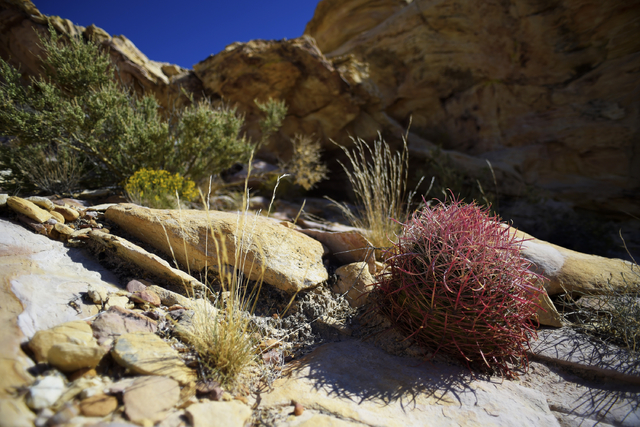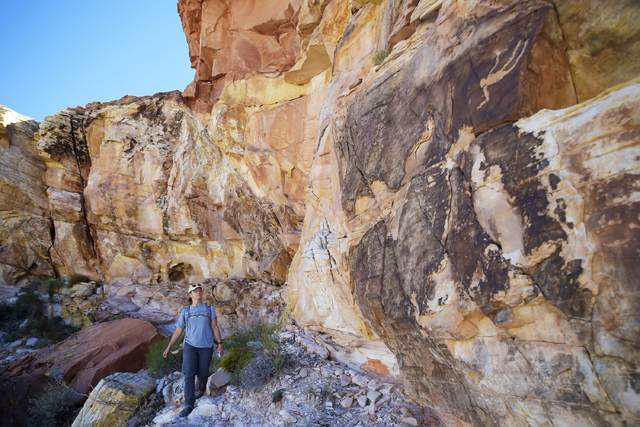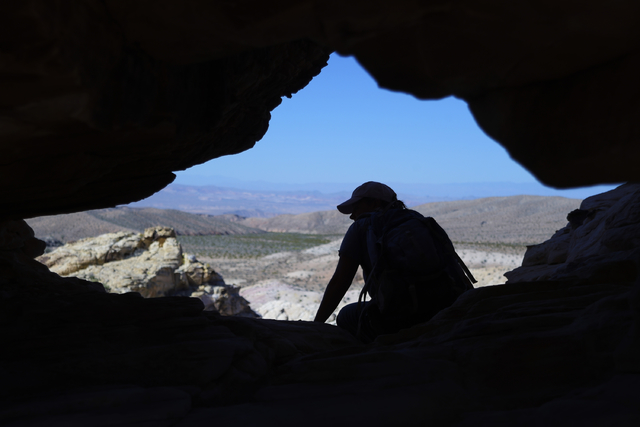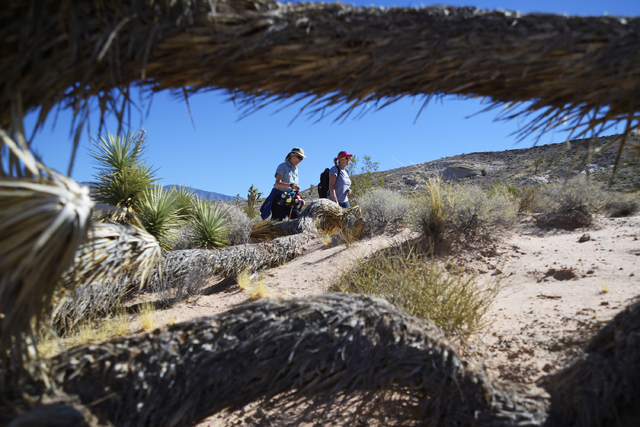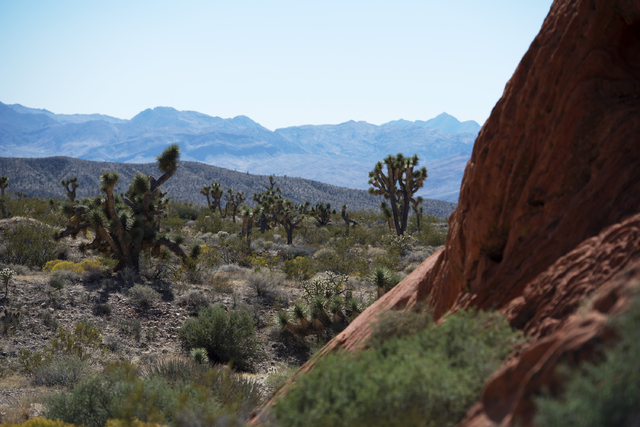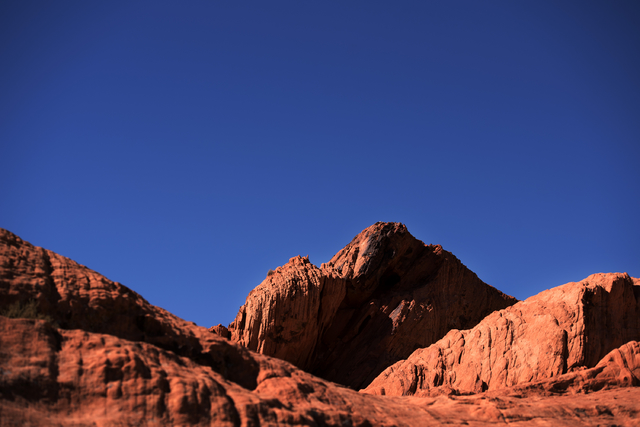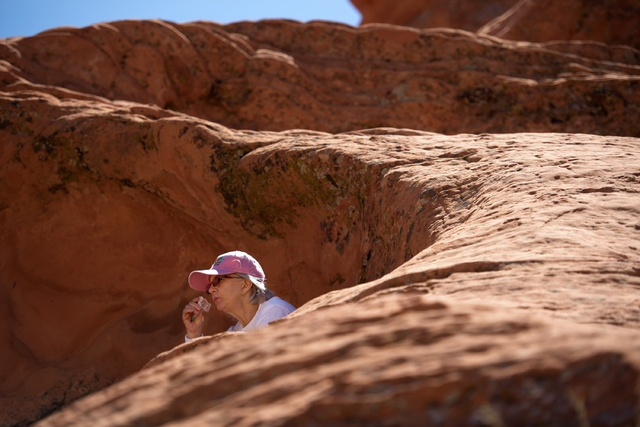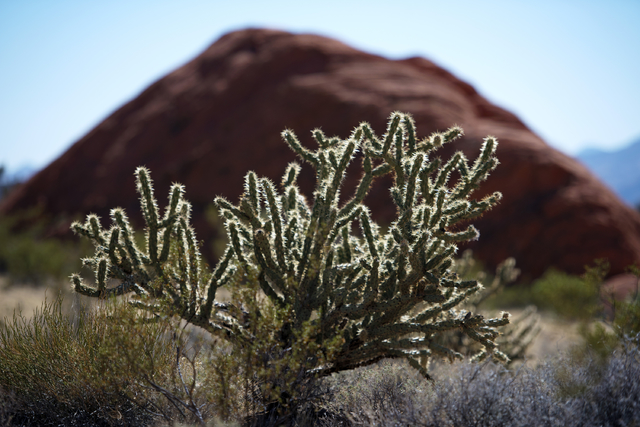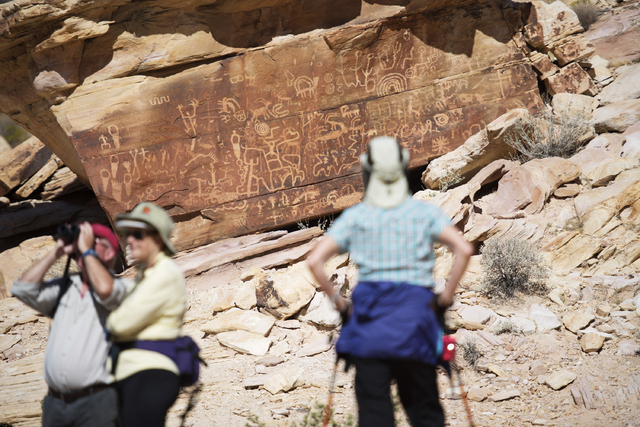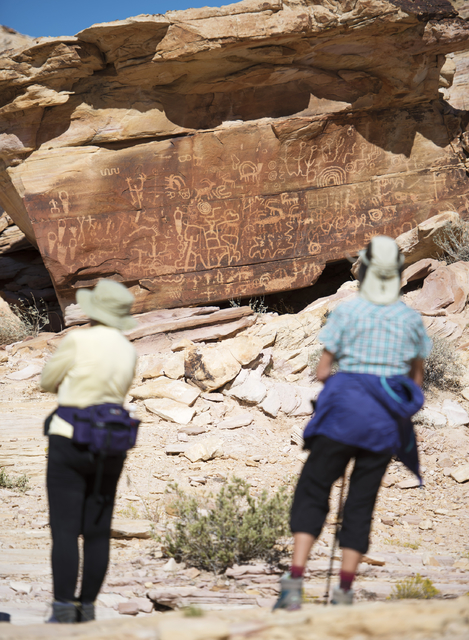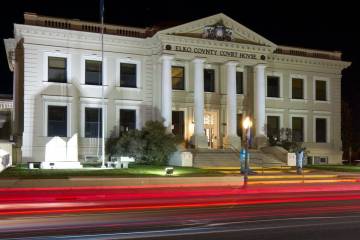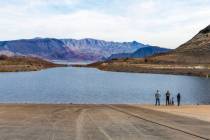Conservatives in Nevada, Utah howl over Obama’s national monument declarations
WASHINGTON — Conservatives in Nevada and Utah reacted angrily to President Barack Obama’s designation of the Gold Butte and Bears Ears areas as national monuments, but any effort to roll back the actions will face steep political and legislative hurdles.
Obama used the Antiquities Act on Wednesday to designate 300,000 acres in Nevada and 1.35 million acres in Utah as national monuments, calling Gold Butte — southeast of Las Vegas near the town of Mesquite — and Bears Ears cultural, historical and natural treasures.
But the action was immediately met with opposition from conservatives in both states who claimed the president abused the law to shield the public lands from state and private use.
U.S. Rep. Rob Bishop, R-Utah, the chairman of the House Committee on Natural Resources, vowed to do everything possible to repeal the declaration.
“We will use every tool at our disposal to do the right thing — whether it be legislative action, judicial action, even executive action,” Bishop said in a statement.
Bishop had introduced legislation in the last Congress to shelter the Bears Ears region in Utah, but the House failed to act on it before adjourning. Environmentalists opposed portions of that legislation.
In Nevada, Republican U.S. Sen. Dean Heller has opposed designations of national monuments by executive order and had urged Obama not to designate Gold Butte as a national monument. He said he would continue to fight for an open process that would require congressional support for new designations. Gold Butte Map
New land designations, “especially ones in Nevada,” need to be considered in an open and public congressional process so that all voices and stakeholders can be heard, he said.
Obama was urged to make the Gold Butte designation by U.S. Sen. Harry Reid and U.S. Rep. Dina Titus, both Democrats, who argued there was a need to protect the public land from vandalism and misuse.
Since the Antiquities Act was passed in 1906, 16 presidents have designated 152 national monuments using the authority, according to the National Parks Conservation Association.
The U.S. Supreme Court has upheld previous use of the act to set aside public lands, most notably in the Southwest, for conservation and to protect artifacts.
President-elect Donald Trump has not weighed in on the recent land declarations, but experts said Thursday he can’t act unilaterally to roll back his predecessor’s action.
NEXT MOVE IS UP TO CONGRESS
Authority to change a designation rests with Congress, said Christy Goldfuss, managing director at the White House Council on Environmental Quality.
When Congress passed the Antiquities Act, it granted presidential authority to declare monuments, but gave no authority to reverse a designation, said Heidi McIntosh, managing attorney for the Rocky Mountain region of Earthjustice, a nonprofit environmental law organization.
The Heritage Foundation, a conservative think tank, has urged Congress to repeal the law, citing Obama’s set aside of land in Colorado, Hawaii and Illinois as abuse of legislation originally passed to protect against the looting of archeological sites.
The foundation said recent declarations have thwarted economic opportunity and removes states and private citizens from decisions made on land use.
Still, legislation to curb or repeal the Antiquities Act would take 60 votes to break a filibuster in the incoming Senate, where Republicans will have a slim 52-48 majority.
And both Goldfuss and McIntosh said that despite the opposition, the declarations in both states enjoy local support from governments, tribal leaders and residents who sought the designations.
Congressional action to negate their designation “would come at a pretty high political cost,” McIntosh said.
She also said the two new national monuments were unique in that tribal communities will have a role in management decisions at Bears Ears and Gold Butte.
Environmentalists, Native American leaders and congressional Democrats applauded Obama’s decision to designate Gold Butte as a national monument, in essence closing a gap of public land between Lake Mead and the Grand Canyon to commercial use.
The area would remain open to hiking and camping, while protecting natural habitat for Bighorn Sheep, mountain lions and the Mojave Desert tortoise. Gold Butte also contains Native American artifacts and historical sites from early pioneer ranchers and Spanish explorers.
‘UNILATERAL LAND GRAB’
Gold Butte became a flashpoint in 2014 because of an armed standoff by Cliven Bundy, his family and militiamen. The standoff was prompted by government officials who rounded up cattle on the federal land under the Bureau of Land Management.
BLM employees returned to the land in 2016.
Bundy and 17 others are facing a trial in federal court in Las Vegas in February on criminal charges arising from the standoff.
After Obama announced his decision on Gold Butte, the Bundy family issued a news release chastising the president for making “our ranch and home a national monument.”
The Bundys called on Nevada Attorney General Adam Laxalt “to fight this to the fullest extent of the law!”
Laxalt denounced the declaration as a “unilateral land grab” that adds another layer of unnecessary federal control to the state of Nevada.
But he did not signal whether the state would take action against the presidential decision.
Contact Gary Martin at gmartin@reviewjournal.com. Follow @garymartindc on Twitter.
RELATED
President Obama declares Gold Butte a national monument
Conservatives in Nevada, Utah howl over Obama's national monument declarations
Reid says he's 'confident' Obama will designate Gold Butte a national monument



